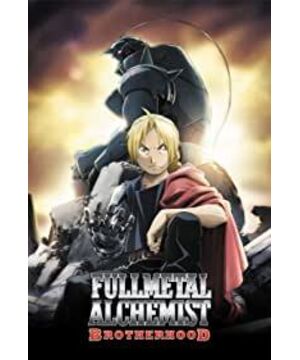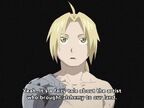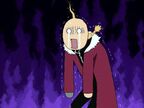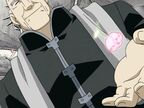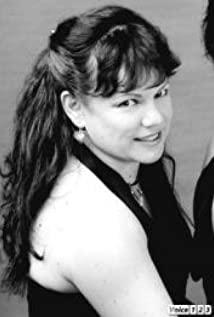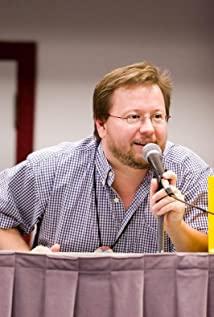To be honest, I was a little disappointed when I watched Steel FA for the first time. The reason was not because steel was not good, but although I thought it was good in every way, it gave me the feeling of a hexagonal warrior—all It's a nine, but in some places it's just a little less. So later I finished the manga, and came back to read it several times. I was surprised to find that Steelmaking FA is very attractive. Every time I read it, I would have a new experience. I finally recognized its status as a masterpiece.
The biggest difference between Steelmaking FA and most of the hot-blooded comics is that the entire steelmaking story basically promotes the plot with narrative rather than "leveling up". "Fighting monsters and upgrading" does not only refer to an improvement in strength, but also a substantial spiritual growth. Because this kind of plot can reduce the important contradictions to the scope of the protagonist, avoiding the troublesome multi-line parallel sequence and character building, it often uses a tricky technique to act in the bloody romance. And it can also change the concept when expressing the theme, reducing the difficulty of understanding. For example, if I want you to agree that B is right, then I will first let the protagonist agree with A, and then let it be deflated, and after the protagonist agrees with B, the journey will go smoothly. The "scam" on the page will make you unwittingly resonate with the author.
Looking at the entire story of Steelmaking FA, the protagonist group Elric brothers not only have little change in strength, but their inner confusion is not without growth, but almost all of them have been taken away (FA is very restored to the comics, in the comics, the characters are confused There are very few pushing plots, even for "Big Brother," the whole thing only takes sixteen pages in the manga). It can be said that the narrative is completely driven by the actions of various influential figures, and the plot density is enhanced by the parallelism of multiple light and dark lines and the three-dimensional character shaping. The entire sixty-four levels are all the main lines. Even on the first time I didn't watch it very well, I really couldn't stop watching it in one breath, and this experience is very rare. In terms of plot rhythm, steelmaking is the only one.
The upper limit of passion driven by narrative is much higher than the upgrade of monsters, such as One Piece and Giant. But at the same time, the test for the author is also very big. For example, the giant has finalized the script from the beginning and then wrote it. (When I wrote the answer, the giant was not finished yet, the ghost knows what the ending will be.) When it is serialized, it is easy to write a chapter and then write it. The whole thing collapsed, but Aunt Niu is obviously the kind of genius who can control the story. The complex multi-line narrative and the successive appearances of the characters not only did not restrain the author, but instead became a stage for Aunt Niu to express her talents. Just like Liu Bang and Han Xin discussing the story of leading troops to fight, the upper limit of Aunt Niu's "leadership" is "the more the better". The bigger the stage, the stronger it is. This is also the reason why the original of Ganglian 03 can't surpass FA. It is very difficult for the 03 version to clear the foreshadowing of the original characters. I didn't expect that a lot of characters and clues would pop up behind Aunt Niu. This is talent difference.
Maybe it's because Aunt Niu is too talented, that's why I didn't feel good the first time. Ordinary authors will try their best to show you their foreshadowing and writing style, but Aunt Niu doesn't. In her opinion, most of the places that can be explored in depth may have already been revealed, so almost all of them are mentioned in one stroke, never procrastinating, and the places that can be implied by the language of pictures and defamiliarization are never made explicit. This feeling of "lifting weights lightly" is another major feature of Steelmaking FA. For example, the little sister who just met turned into a monster in a blink of an eye
For example, Hughes, who was still joking at the beginning, died tragically in a phone booth at the end.
For example, the carnage that took only a few pictures.
For example, the "rain" in front of the tombstone by Da Zuo.
Such as cruelty concealed with humor.
These are light-lifting of the dark side, nothing hoarse, and some are just a deep heaviness after the silence. At the same time, "lifting weights lightly" is also used when expressing warmth. For example, a little story about a family of four when they were young
For example, Wendy and grandma, who always welcome the two brothers home
Such as the ubiquitous love between two brothers.
For example, Dou Dad's unspoken love for his family.
Steelmaking also discussed many issues, such as the test of human nature in brutal wars, and the speculation on religious beliefs. A reflection on the body and soul composed of the younger brother Al and the one who cut people. And the search for "truth" throughout the text. They all draw their own conclusions based on respect for the facts.
But the core of the entire steelmaking story is "equivalent exchange" and "heart refining". However, I think that steelmaking FA is more discussing about equivalent exchange. Whether it is the protagonist group or the villain, basically everyone has a tough heart. A story of a group of people.
And the equivalent exchange does not only refer to the equivalent exchange of alchemy. But from the form and category can be divided into two categories. In terms of categories, it can be the exchange of things in reality, such as alchemy, such as the intertwining of interests between high-level officials, such as ** in the name of religion, these all show that a corresponding thing will inevitably produce the same At the same time, it refers to the intangible exchange, such as the improvement of strength obtained by hard work, such as the tenacity of the heart in exchange for pain, such as the kindness in exchange for sincerity.
Formally, it can be caused by human subjectivity. For example, in order to obtain something, one must have the consciousness of losing its equivalent. It can also refer to passive reasons. For example, even if people are forced to encounter some unfortunate things, they will inevitably gain something from it, but it is not necessarily a benefit. And the lame confession between Edward and Wendy at the end sublimates the idea of equivalent exchange. If there is one thing in this world that doesn't follow equal exchange, it's emotion. This is also the reason why Wendy said, "Don't talk about half of it, I can give you all of it". This plot is in sharp contrast with the previous paragraphs that emphasized the importance and absoluteness of equivalent exchange. In this case, this confession is even more precious.
In addition, the character building of complex characteristics is also a very good point of Steelmaking, whether it is the two brothers who adhere to the bottom line of not killing people or the kind and ambitious Chief. Or the Seven Deadly Sins and the New Kingdom. Each character sticks to his own form of belief, so in steelmaking, "cooperation" is more than "persuasion", "line conflict" is more than "struggle between good and evil", and various subtleties are established in the unchanged character The change. Such as "arrogance" and "anger" for the president's wife, such as "jealous" last cry, such as the reconciliation of Edward and his son. And there are people who grow slowly but steadily.
In the end, the music and fighting parts are the bonuses given by the Bone Club to the steelmaking. Whether it is the regrouped again or the sad but not sad rain, it is a divine comedy, and the lyrics are even more emotional with the plot.
For the sake of my dream, I never gave up on the narrow path of exploration, which made me once again frustrated in the journey of life and said nostalgic reflections, not hoping to return to the past but looking for the lost sky. The road in the distance is full of thorns, but it is not far, it is rough and difficult to walk, just need a kind of persistence. — "again" Steelmaking is a serious drama, and although it has many dark and heavy motifs, the core is very inspiring. To this day, often when I encounter difficulties, I still often think of Da Zuo's lack of confusion in the face of lust.
And Edward's monologue at the end. "Growing up without pain is meaningless. If people don't sacrifice anything, they can't get anything. But when people endure and overcome this pain, they can get a very tenacious person who doesn't succumb to anything. Heart of steel."
View more about Fullmetal Alchemist: Brotherhood reviews


